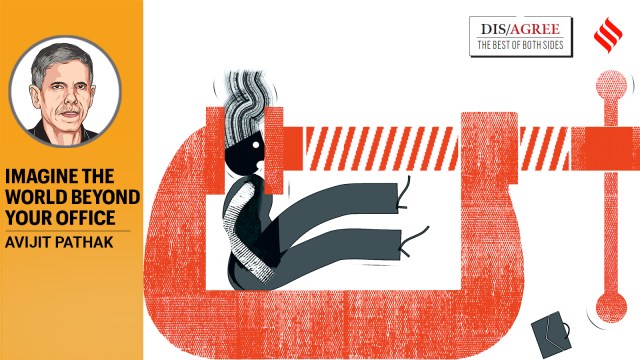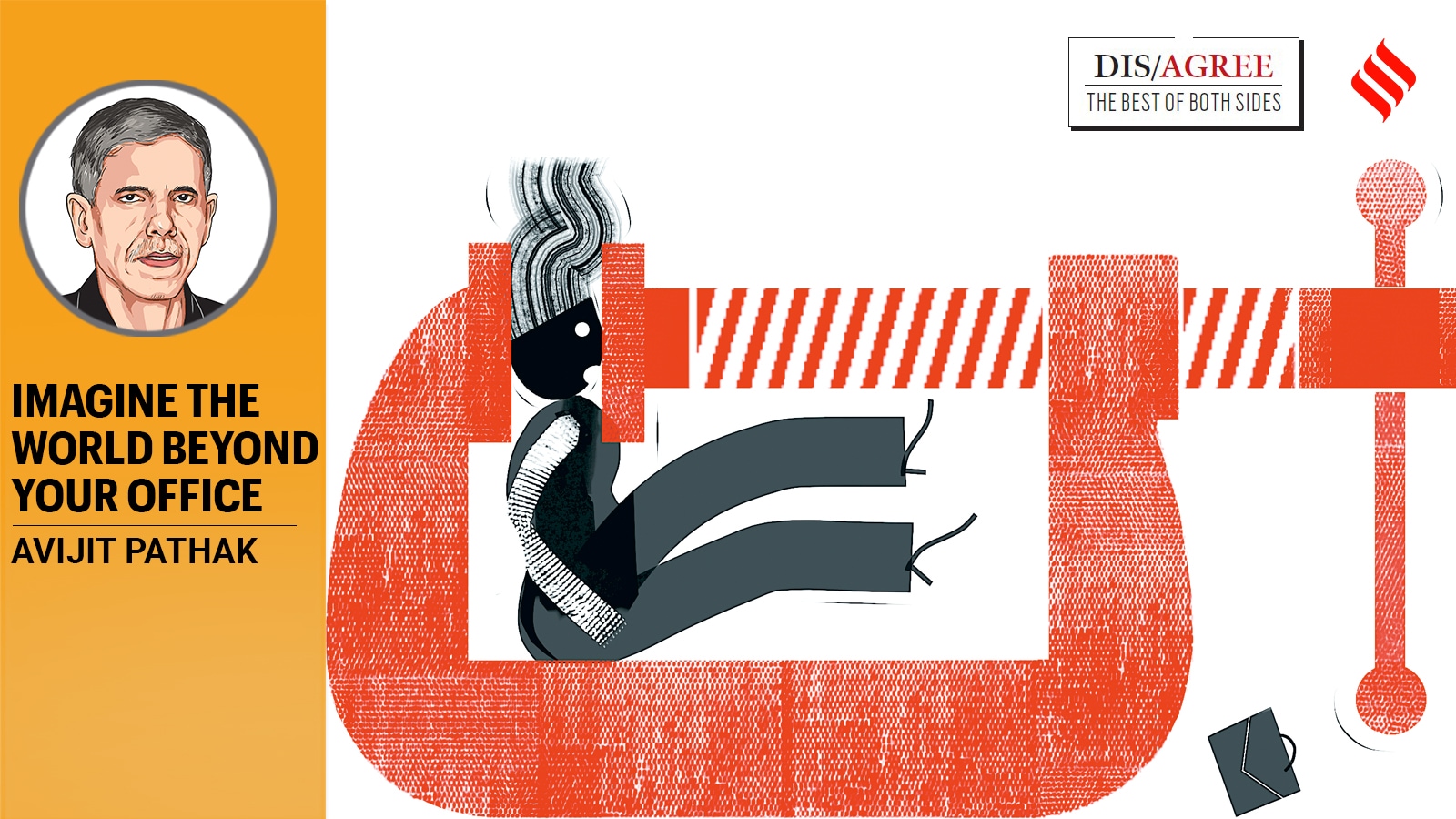
Dear young friend, I am writing this letter because I value your innate possibilities, your creative energy, and your urge to earn your livelihood through meaningful and life-affirming work. Yet, I feel worried. Will you be able to celebrate your work, and also experience a deeper meaning of existence? Will it be possible for you to realise that there is a world beyond your office — the tiny cubicle on the 20th floor of a skyscraper? Will there be sufficient “surplus” time to converse with your ailing grandmother, read Pablo Neruda or Herman Hesse, and go for a long walk?
Possibly, you are thinking that I am imagining a rhythm of life that has no meaning in the age of “productivity” and “efficiency”. Possibly, as an ambitious young person gifted with a sought-after degree like B Tec/MBA/ chartered accountancy, you are thinking that nothing is more important in life than the urge to be a “winner”. Work, work and work; earn money; achieve “success”, and consider everything else as secondary.
You might have heard about the tragic death of Anna Sebastian Perayil, the 26-year old chartered accountant, an employee of the global organisation, Ernst and Young in Pune. It seems she could not bear the tyranny of deadlines and associated work stress, anxiety and sleeplessness. You might be persuaded to think that her case is an “exception” — Anna was not “strong” enough to bear the pressure of work. This temptation to blame the victim prevents you from accepting that the work culture the techno-corporate world has created is essentially life-killing. Don’t be under any illusion, dear friend. It dehumanises you and transforms you into a mere resource to be perpetually exploited, even if from the outside everything looks glamorous — a lucrative salary package, a weekend office party in a mega hotel, or “three nights and four days” at a Maldives resort.
Forgive me, as I urge you to ask three questions: What is meaningful and life-affirming work? What is “productivity”? And what is “success”? Quite often, the work we do — even when it’s “prestigious” — does not fulfill us. The experience of being alienated from one’s work is not present only in Karl Marx’s theorisation. For many, it is real. Neither money nor glamour can heal the pain of fatigue, boredom and meaninglessness. Think of it. Possibly, it becomes exceedingly difficult for your role models to escape from this alienated work because the seduction of consumerism has already trapped them. Where do they get the money to pay the EMIs for almost everything they regard as “important” — a luxury car, a fancy apartment in a gated community, a loan for their children’s “foreign education”?
Or, what is “productivity”? Is it only for enhancing the profit of the corporation that has hired you? Does it really help you to unfold your hidden potential, or help you to experience the bliss of holding what, for instance, William Blake would have characterised as “infinity in the palm of your hand”?
Your generation, I assume, is fond of “self-help” books — the bestsellers that give a set of instructions for achieving “success”, and becoming a “billionaire”. And the more you run after this mythical “success”, the more tired and wounded you become. And then, in this age of instantaneity, the spiritual industry comes forward with all sorts of fancy gurus who instruct you how to “detox” your mind in 10 minutes, and then come back to the same routine.
Don’t regard me as a “romantic fool”. I am not asking you to cherish poverty. If the addiction of money, fame and glamour disempowers you, the trauma of poverty belittles you. I am only urging you to sharpen your intelligence and wisdom to distinguish your true needs from the baggage of market-induced artificial ones. Only then is it possible for you to say “no” to your boss who asks you to work for 70 hours in a week, and forget what really matters for your sanity — say, feeling the magic of Bismillah Khan’s shehnai while touching the hands of your grandmother, and watching an amazing sunset!
Live aesthetically and creatively, dear friend.
Love and prayers…
The writer taught sociology at JNU



